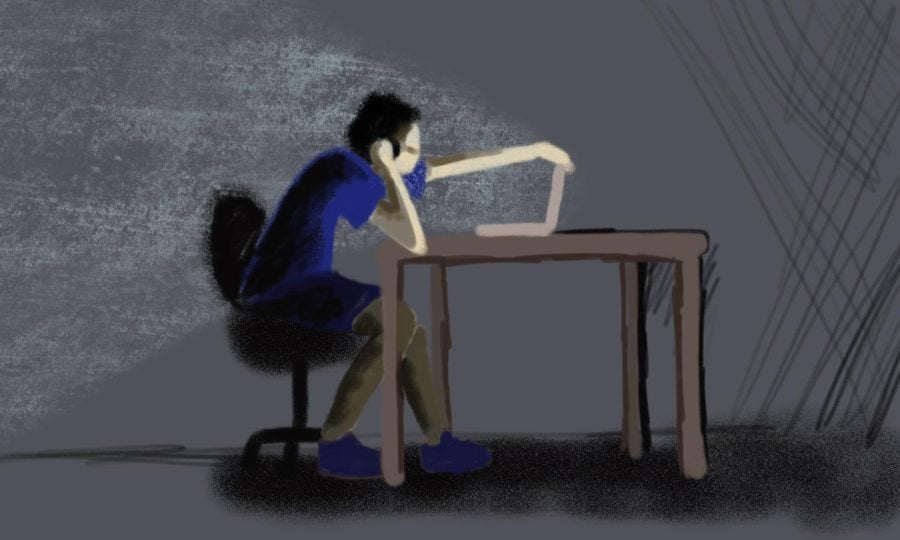Students, peer mentors have mixed reactions to Computer Science 211 changes
Recent changes to Computer Science 211: Fundamentals of Computer Programming II, which include new homework assignments, have resulted in mixed feedback from students and peer mentors.
March 8, 2023
A recent overhaul to Computer Science 211: Fundamentals of Computer Programming II, a required introductory course for computer science majors in the McCormick School of Engineering and Weinberg College of Arts and Sciences has mixed reviews. It has received some positive feedback for its increased rigor but has also overwhelmed some students and peer mentors.
The course includes new homework assignments and reduced office hours compared to previous quarters, according to multiple peer mentors for the class. Starting this quarter, students in the course are also assigned to a specific peer mentor— or teaching assistant — to work with throughout the course, rather than being able to seek help from whoever was available.
Computer science Prof. Joseph Hummel, the current CS 211 instructor, arrived at Northwestern in 2022. After co-teaching the course Fall Quarter, Hummel said he wanted to restructure the class assignments because he believed they had not been in line with course objectives.
Hummel said he spends about 60 to 80 hours each week on CS 211 and often answers student questions after hours and during weekends. He added that he has received positive feedback from the 20 students who regularly come to his office hours for the course.
“The students I see are working hard,” Hummel said. “They’re engaged in the projects, and they’re learning a lot of what I want them to learn.”
When Weinberg freshman Emma Scally learned Hummel was making changes to CS 211, she said she was excited to work on more hands-on assignments. Scally said she hopes to finish the class with a strong grasp of the course’s coding languages, C and C++.
While Scally believes making the course more difficult was a good idea, she said she feels in-class instruction did not cover enough of the foundational concepts of C. When completing the first course assignment, she said she was shocked her homework involved concepts and a coding language not covered in class.
“If you really want to fundamentally change the way (the class) works and make everything harder, you still have to understand this is supposed to be an introductory course,” Scally said. “We’re not coming into this class expected to know any C or C++.”
Weinberg freshman Miya Liu said she entered CS 211 with no experience with C or C++. She said she appreciated that the course material is more difficult than that of her previous computer science experience at NU.
Liu said adjusting to a new course structure will always be a difficult transition, and she thinks it’s valuable for the department to test out more challenging curriculums.
“Communication between the handout we’re getting, and also (between the) professor (and) PMs, might be a little bit difficult just because everyone has different expectations,” Liu said. “But once that has been established, it makes a lot more sense.”
McCormick senior Antonio Rocha, who is a PM for the course, said the course’s changes have received mixed reviews. Some students report they spend significant amounts of time on homework assignments and others say they don’t know where to begin.
He said he is concerned about assignment difficulty because it can cause students to focus on “surviving” rather than “learning.”
“Before, during my office hours … (students) would actually sometimes get very genuinely curious about certain topics and would ask deeper questions,” Rocha said. “This quarter has been very focused on just very explicit questions about the homework assignments and clarifications and things along those lines. There’s no room for curiosity. It’s just room for surviving.”
Rocha said if he had taken the course, he would’ve been “weeded out” by its difficulty and likely would have made a career change.
According to Hummel, CS 211 began the quarter with 234 students and now has 198 — a drop rate of about 15%. Hummel said he was told by fellow colleagues that the average drop rate for all computer science classes is about 10%.
Rocha said the drop rate for previous CS 211 classes he’s PMed for has been between 5 and 10%, but Hummel said those numbers are not official.
McCormick sophomore Cheryl Lin, also a PM for CS 211, said it was discouraging to see students she has spent a lot of time with dropping the class. She said her office hours have been “constantly full,” especially during the first two weeks of the quarter.
“I will say they have gotten better throughout the quarter, but the first two assignments were kind of whiplash to the students in CS 211,” Lin said. “I think the learning curve was a little too steep in the first couple of projects.”
However, Hummel said many students in the course have near perfect scores. According to Rocha, most students do well on the homework because they can see their scores right away and then resubmit their assignments as many times as they need to before the deadline.
In future quarters when he teaches CS 211, Hummel said he is convinced the drop rate for CS 211 will decrease after he revises the first three assignments’ instructions to be more clear. He plans to adjust the textbook and PM system based on Course and Teacher Evaluation Council survey responses.
But overall, Hummel believes the CS 211 course structure is appropriate and draws from his years of teaching experience.
“That’s sort of the beauty of academic freedom,” Hummel said. “There are key things that are supposed to be taught, and every faculty member should do that. But they don’t have to teach it my way, and I don’t have to teach it their way.”
Email: fionaroach2025@u.northwestern.edu
Twitter: @fionaroach03
Email: anniexia2025@u.northwestern.edu
Related Stories:
— Computer science Prof. Samir Khuller named ACM Fellow
— After ‘explosive growth,’ EECS to split into two departments



